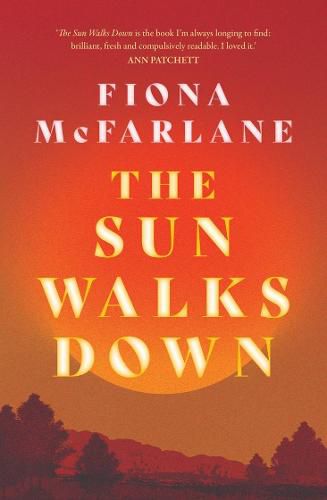The Sun Walks Down by Fiona McFarlane
In The Sun Walks Down, Fiona McFarlane doesn’t just describe the landscape of 1880s rural, colonial Australia, she slices it open and dissects it. The effect is visceral. Denny, a six-year-old boy, is missing in the harsh South Australian desert. His parents (a hard of hearing mother and stockman father), his many sisters and the rest of their small, fictional town of Fairly are all involved in the search, whether it be on horseback, on foot or by proxy.
The novel presents a cast of characters, all fully fleshed out and familiar. Even though there are many points of view from which this story is told, McFarlane brings each and every one of her characters to life. Among them, we have two young newlyweds, a First Nations man who is a force with a cricket ball, a vicar who is a bit of a mess,a Swedish painter and his British wife, a German sex worker, a sergeant who wantsto write, and a teenage girl who knows better than everyone else. Their stories are cleverly, almost poetically, interwoven and contain some perspectives that are often omitted from the Australian colonial narrative. Then there is the sun – a character in its own right – symbolic of gods, of life, death and art.
While the town searches for the boy, each character conducts a separate search for something else: we see them grapple with identity, with shame, with the meaning of the human condition. McFarlane depicts how inevitably egos find their way into what should be a selfless task, that of finding a lost child. The landscape also plays a heavy role in each character’s experience, and the author makes it glaringly obvious that no coloniser has full understanding or ownership of this land. McFarlane should be celebrated for this book; it is excellent and thoroughly engaging.



